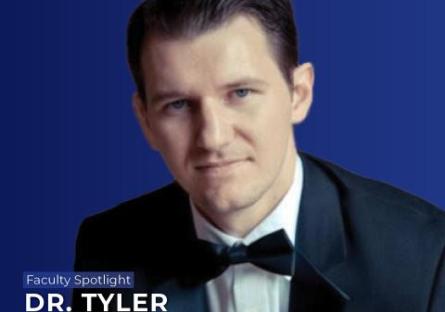
To say GateWay residential faculty member Tyler Thimsen knows the field of nuclear medicine would be an understatement. Prior to arriving at GateWay, Thimsen was involved in the field of nuclear medicine for more than 12 years, having worked as a staff technologist, lead technologist, clinical instructor and senior manager of diagnostic imaging.
Originally unsure about what medical field he wanted to pursue, it was after shadowing his older brother who is a nuclear medicine technologist that he found his calling.
“I was able to see the skills that were learned to perform the job and the positive impact he had on patients,” said Thimsen, who currently serves as Radiation Safety Officer for the Nuclear Medicine Technology Program at GateWay.
In addition to his work at the college, Thimsen contributes valuable research to the field of nuclear medicine. His most recent article, Identifying Teaching Methods Used by Clinical Instructors in Nuclear Medicine, was recently published by the Journal of the American Society of Radiologic Technologists, an official scholarly journal of the American Society of Radiologic Technologists. And his article has been featured on other sites, such as the National Library of Medicine.
The success of his article is garnering attention from those in the industry, so he will be presenting to his peers at the annual Society of Nuclear Medicine and Molecular Imaging meeting in June.
Even with all of his research and professional success, it is still his student’s that provide him with some of his greatest experiences.
“Having the ability to help students succeed in their careers never stops motivating me as an instructor. The field of nuclear medicine is very unique because many prospective students are not aware of what the occupation entails. Providing students with the knowledge of what the career is all about and the impact they will have on patients always generates excitement,” said Thimsen.
While the knowledge and material he teaches is important to his students, he also hopes they will take away something more meaningful.
“Beyond the core concepts of practical nuclear medicine, I would hope that my students are able to take away the importance of empathy and compassion toward patients. Nuclear medicine technologists perform a wide array of exams, and the ultimate goal of our diagnostic imaging procedures is to help patients.”
Read Thimsen’s full article here.